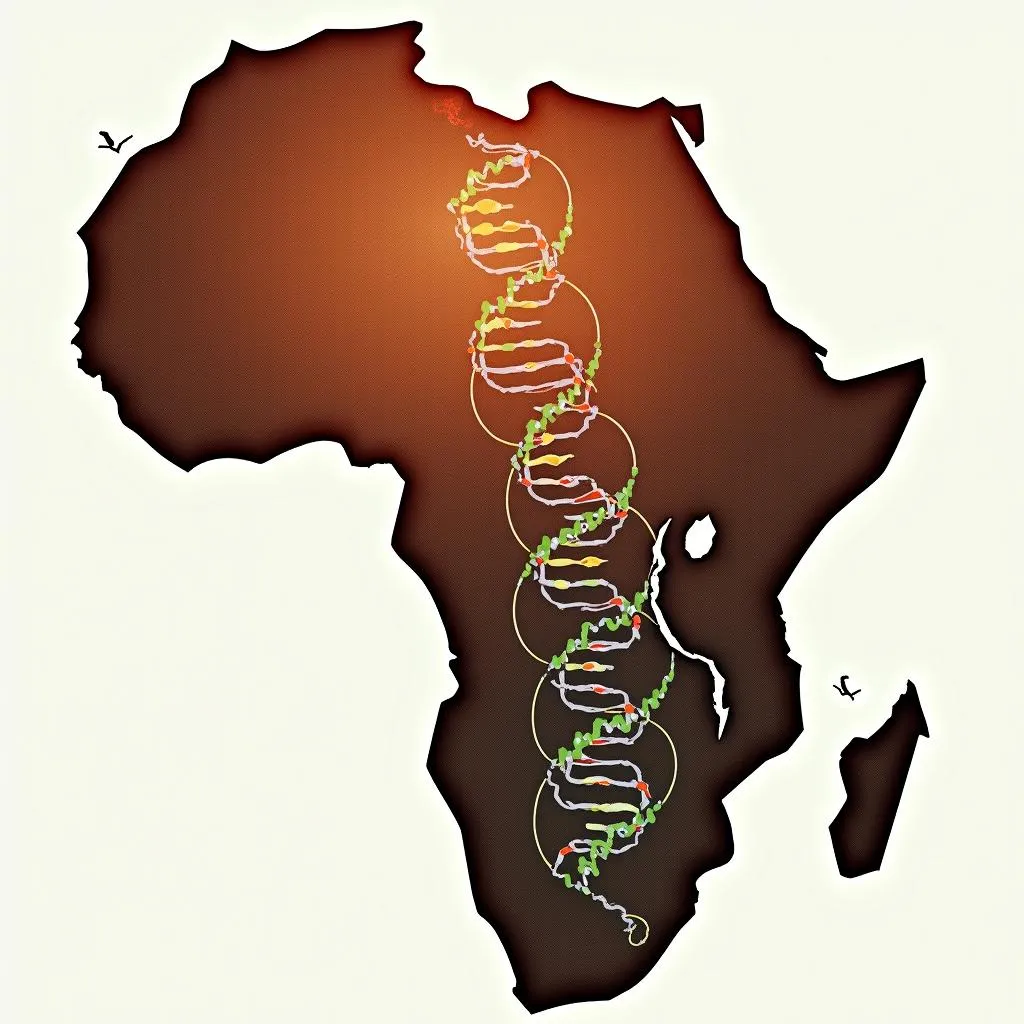African Genetic Diversity: Implications and Significance
African genetic diversity is not just a scientific curiosity; it’s a testament to the continent’s long and complex history. As the cradle of humankind, Africa holds the greatest genetic diversity among all continents, a fact with profound implications for understanding human history, health, and even the future of medical research.
This diversity stems from the fact that modern humans originated in Africa and have lived there the longest, allowing for greater genetic variation to accumulate over time. This incredible tapestry of genetic information provides a rich source of knowledge for researchers across many fields.
Unraveling Human History Through African Genes
Studying African genetic diversity is like peering into a vast library of human history. By analyzing genetic markers, scientists can trace migration patterns, understand ancient population movements, and even shed light on the origins of certain diseases.
For example, the discovery of ancient DNA in fossils across Africa has helped researchers piece together a clearer picture of early human evolution and the spread of Homo sapiens across the globe. This genetic data complements archaeological findings, creating a more detailed narrative of our shared past.
 African Genes in Tamil Population
African Genes in Tamil Population
African Genetic Diversity and Medical Advancements
The vast genetic variation in Africa holds immense potential for medical breakthroughs. By studying different populations within Africa, researchers can gain a deeper understanding of disease susceptibility, drug response, and other health-related factors that can vary based on genetics.
For instance, some populations in Africa have shown remarkable resistance to certain diseases. Understanding the genetic basis of this resistance could lead to the development of new treatments and preventive strategies for a wider range of people.
Furthermore, African genetic diversity can help address biases in existing medical research that has often focused on populations of European descent. This limited scope can lead to inaccurate diagnoses and ineffective treatments for individuals with different genetic backgrounds.
Challenges and Ethical Considerations
While the potential benefits of studying African genetic diversity are significant, it’s crucial to acknowledge the ethical challenges. The history of exploitation in scientific research, particularly in Africa, necessitates a cautious and respectful approach.
Informed consent is paramount. Researchers must ensure that individuals and communities fully understand the purpose, risks, and potential benefits of participating in genetic studies. Additionally, benefit-sharing agreements should be established to ensure that African nations and communities share in the rewards of discoveries made using their genetic resources.
Looking Ahead: The Future of African Genomics
The field of African genomics is still developing, but it holds immense promise for understanding human history, health, and our place in the world. As technology advances and research continues, we can expect even more groundbreaking discoveries that will reshape our understanding of ourselves and our shared ancestry.
However, progress must be coupled with ethical considerations and responsible practices. By prioritizing collaboration, transparency, and equity, we can harness the power of African genetic diversity to benefit all of humanity.
 Diversity of African Physical Features
Diversity of African Physical Features
FAQs
1. What makes African genetic diversity so unique?
African populations possess the highest genetic diversity globally due to their long evolutionary history on the continent. This diversity provides invaluable insights into human origins, migration patterns, and disease susceptibility.
2. How can African genetic diversity impact healthcare?
Understanding genetic variations within African populations can lead to more effective personalized medicine, tailored treatments, and a deeper understanding of disease risk and drug response.
3. What are the ethical considerations in studying African genetic diversity?
Respecting cultural sensitivities, obtaining informed consent, ensuring equitable benefit-sharing, and protecting the privacy of genetic information are crucial ethical considerations in this field.
4. How can I learn more about African genetic research initiatives?
Numerous organizations and research institutions are dedicated to studying African genetics. Resources like the African Society of Human Genetics and the H3Africa consortium provide valuable information on ongoing projects and findings.
Need More Information?
For more insights on related topics, explore these articles:
Contact us at +255768904061, email kaka.mag@gmail.com, or visit us at Mbarali DC Mawindi, Kangaga, Tanzania. Our team is available 24/7 to assist you.




